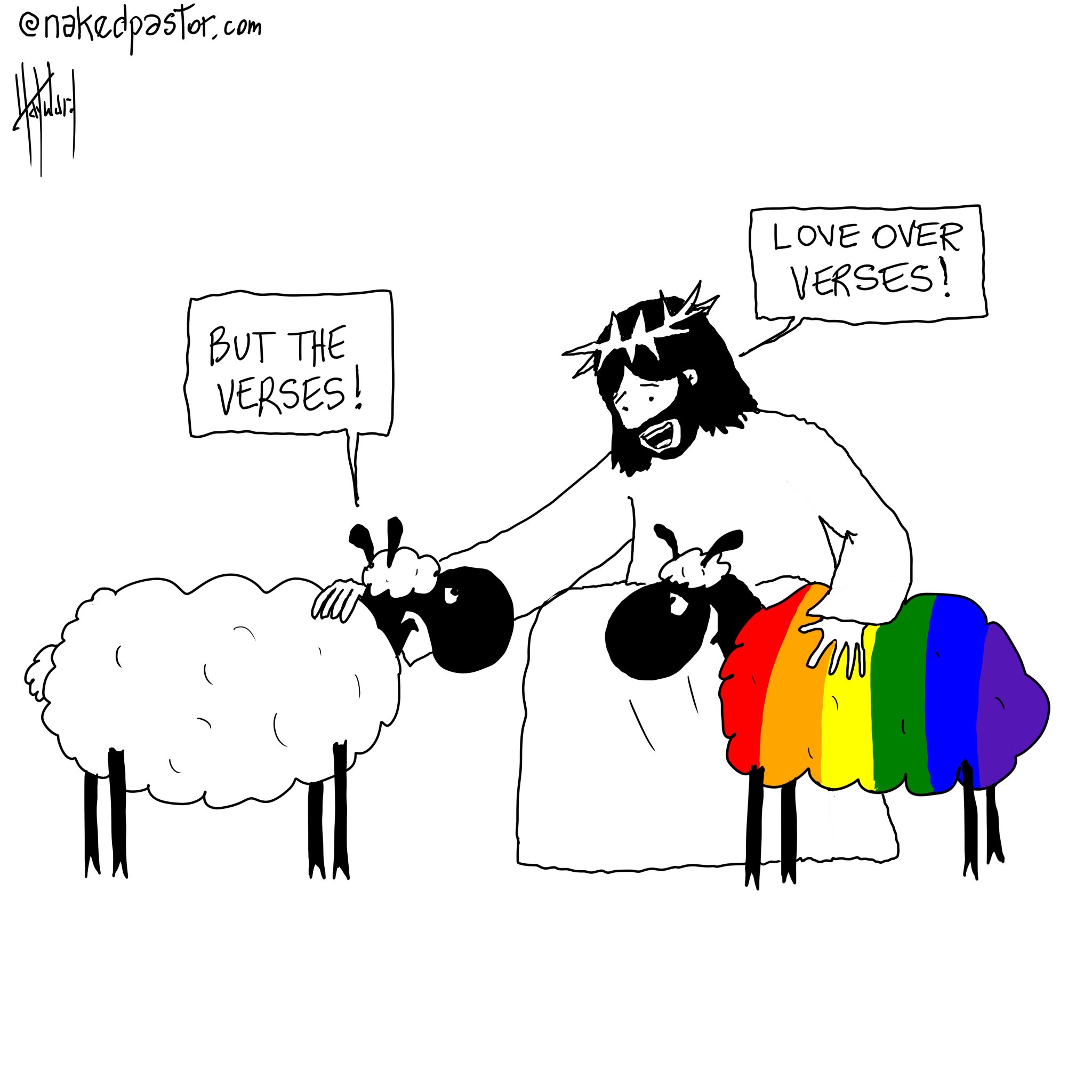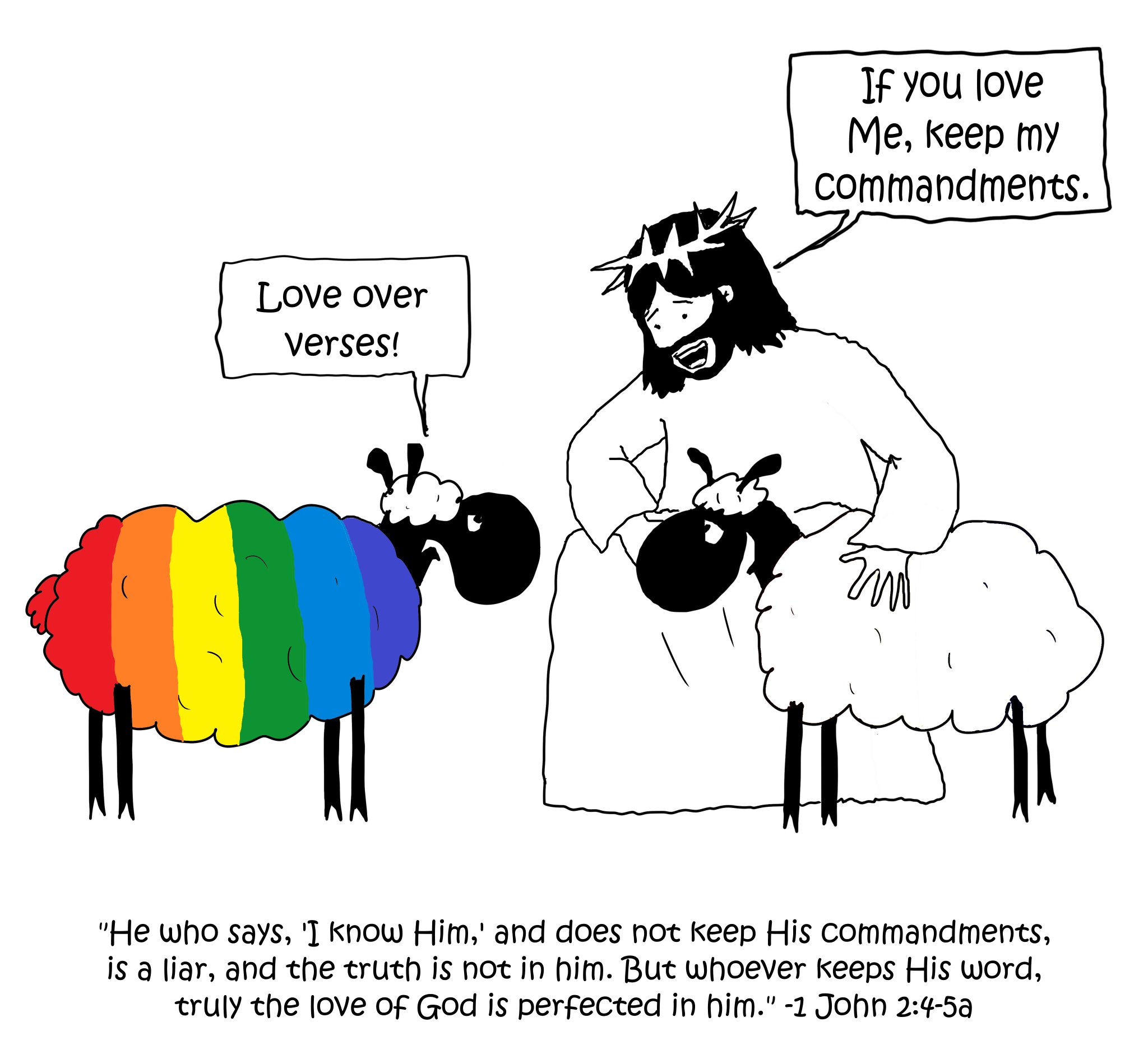As discussed in “Church Attendance,” there has been a shift in the religious young men in America. The narrative is that masculine-focused men are choosing the masculine-focused religions of Cathodoxy—Roman Catholicism and Eastern Orthodoxy. But it is the latter that is seeing the largest gains. The loser is, purportedly, evangelical Christianity.
Then I noted, in “More on Church Attendance,” the key problem with this thesis raised by a commenter:
All in all, this explains why most of the newcomers in your church are men, and why they leave AEP.
Those leaving the AEP church for the EO church for the reasons mentioned above are shortsighted because they fail to address or be concerned about the differences in beliefs between the two churches. And the differences are huge.
Basically, they seem to believe that structure, i.e., Headship, marriage and family is what church should be about while teachings and beliefs are fluid. Those come with the territory, i.e., AEP or EO and are either of little importance or are irrelevant.
Thus, church becomes kind of a social club.
It’s not a matter of following the right religion or the right theology (i.e. the true teaching of Christ). It’s about aesthetics. There isn’t anything special about Eastern Orthodoxy, except its ideology of masculinity. Men are not flocking to Eastern Orthodoxy to find Christ, they are attracted to an appealing human ideology.
But this has not stopped the claim that Eastern Orthodoxy is winning the race:
In the past, Catholics, Orthodox, and Protestants did not engage in open debates very often. But since 2021 or so, there have been an increasing number of debates between Catholics, Orthodox, and Protestants.
…
At present, from what I have seen, Orthodox are completely destroying Catholics and Protestants in these debates.
Whatever happened to Cathodoxy?
The next generation will NOT hold prejudices against a church because it is NOT their own familiar version of Catholic / Orthodox / Protestant, as past generations have; but instead, people will judge a church by the quality of people who attend there, and especially the collective societal and macroeconomic accomplishments of those who grew up there.
Where sectarian discrimination might still exist, it will be regarded as a theosophical dinosaur from the 20th century that continues to linger and lumber.
Instead, churches will only be known by…
- Their reputation for their demonstrated and lived-out faithfulness to the Word of Truth.
- The lovingkindness and liveliness of their congregations.
As it should be.
…
I can foresee the future of Christianity in America being comprised of essentially two types of Christian churches, which I’ll call the Patriarchal “Do it Right” church, and the sinner-friendly “FAFO” church.
The problem is that avoiding “prejudices” and “sectarian discrimination” logically entails a rejection of theology; exchanged for feelings (lovingkindness; liveliness), political ideology (patriarchy vs feminism), groupism (collectiveness), social status (reputation), and ill-defined platitudes (the “Word of Truth” without the substance of theology).

Do you know who is good at lovingkindness, reputation, liveliness, and faithfulness to Jesus’ Word of Truth in love? The hard progressive left. They too reject any emphasis on divisive theology and sectarian divisions. They want an open door for everyone. They too want us to stop fighting the old debates. They already believe that sectarian divisions are a “theosophical dinosaur.” They want to be judgment free! In short, they want a Christianity based on feelings, political ideology, social status, and platitudes without all that reliance on icky theology.
Where is the focus on Christ (and his redeeming work of justification by faith once and for all)? You won’t find it in the description given:
The Patriarchal “Do it Right” Church
The better, more reputable, and more doctrinally faithful group of churches will be ultra-conservative churches that emphasize Patriarchal Headship, marriage, and family formation.
For those who need an explanatory or evo-psyche reason, it is simple.
- Churches that don’t foster and support strong families are NOT going to have future generations to pass their traditions on to.
- Churches that do not affirm and support the authority, dignity, and value of men will not be able to retain the male breadwinners, champions, movers, and shakers of society.
- Churches that do not produce family-minded, feminine, supportive, and submissive women will not have viable wives and mothers to birth and raise future generations of the faithful.
- People who grow up in a church with the above qualities are more likely to carry their faith into adulthood.
Christ is missing, replaced by ideologies focused on purely earthly concerns (like marriage and conservativism). But the theological issues do not simply disappear because you choose to ignore them. Here is what I want instead:

Yes, it is divisive. Yes, it is sectarian. But it’s also got Christ.
Do not assume that I came to bring peace on the earth. I did not come to bring peace, but a sword. For I have come to set a man against his father, and the daughter against her mother, and the daughter-in-law against her mother-in-law, and a person’s enemies will be those of his own household! Whoever loves his father or mother more than me is not worthy of me, and whoever loves his son or daughter more than me is not worthy of me. And whoever does not take up his cross and follow me is not worthy of me. Whoever finds his life will lose it, and whoever loses his life because of me will find it.
Divisions are good, because they allow us to delineate between different things. For example, this divider…
…separates the discussion above with what follows below to improve readability and flow.
Without the ability to divide things, we (at best) lose the ability to clearly contrast things and (at worse) cannot know what is right and wrong. Division is not a sin and it would be divisive to assert that division was wrong, a self-refuting proposition. Without division and “sectarianism” there could be no choice.
Now, consider the case of the eucharistic miracles.
This is a very good question. There are really only three possible responses. The first is straightforward:
(1) Eucharistic miracles are all fraudulent
But if that one isn’t true, then you must choose one (or both) other possibility:
(2) Some eucharistic miracles are divine in origin
(3) Some eucharistic miracles are demonic in origin
If you are Roman Catholic, this is very easy: you select option #2. Roman Catholic apologists are quick to point out that Eucharistic miracles are a Roman Catholic phenomenon. The veracity and legitimacy of the miracles have been confirmed by priests, cardinals, a pope, and various non-Catholic experts. Thus, the existence of such miracles provides, in the eyes of the Roman Catholic, compelling proof that it alone is the true church.
(That means all those young men flocking to Eastern Orthodoxy are doing so in error)
If you are Protestant, this would also seem very easy: you select option #1 and/or #3. Either one—or both—can be justified. The problem with #1, however, is that if you take the time to study the eucharistic miracles, it’s just too difficult to conclude that they are fraudulent. There are too many eyewitnesses, too many examples of the miracles for them all to be fraudulent, and too much scientific confirmation. It is convenient to claim that they are fraudulent, but not if you follow the evidence where it leads. So you’ll either admit they are correct and convert or you’ll admit that they are demonic and reject the Roman Catholicism. There really isn’t a middle ground. The intellectually honest Protestant has to make a choice and take a stand.
This explains why Protestants are converting to Roman Catholicism. But what about the Eastern Orthodox?
First, the Eastern Orthodox cannot accept #2—that they are miracles of divine origin—for it would be tantamount to acknowledging that Orthodoxy was the wrong branch from the Great Schism.
Second, the Eastern Orthodox cannot claim #1—that the miracles are fraudulent—for that is hardly the rational position. EO isn’t going to wipe the floor in debates if it tries to take this position. The evidence is overwhelming that the miracles are real (i.e. either option #2 or #3).
But let’s say the EO goes with option #1 anyway, giving up any claim to the high ground on debates. If so, then there is no Cathodoxy. There can be no unity between a church that authenticates fraud and one that does not. There can be no fellowship between Roman Catholics and Eastern Orthodox, between those who tell the truth and those who are liars.
Either way, option #1 is unpalatable.
Third, that leaves the EO with #3—the conclusion that the eucharistic miracles are demonic in origin.
“What’s so bad about that conclusion,” you might ask? It means the Protestants were right that Roman Catholicism is illegitimate. It would mean that the Reformation was a legitimate schism: rightfully rejecting the Roman Catholic Eucharist as demonic. This is a bigger problem because the Eastern Orthodox eucharist is not so clearly different from the Roman Catholic eucharist. It’s not particularly clear how the Roman Catholic eucharist can be demonic while the Eastern Orthodox one is not, considering how closely related they are to one another. Protestantism contains the only set of denominations clearly distances itself from the Roman Catholic Eucharist in both form and function.
But as with option #1, if #3 is true, then the concept of Cathodoxy is a massive misnomer. If #3 is true, there can be nothing in common between a denomination that serves Satan and one that does not. So if you see young men flocking to “Cathodoxy” it cannot be because they are seeking Christ and the truth. After all, indiscriminately choosing Satan or Christ means that young men are not choosing for theological reasons.
Regardless of the position you take on the Eucharistic Miracles, the reason for the usage of the term “Cathodoxy” is to reflect the fact that both Eastern Orthodox and Roman Catholic share a masculine ideology. The thesis stated above suggests that a subset of Protestant churches will reject sectarianism and join them in unity.
But, they don’t share a compatible theology.
The underlying theological differences undermine the implied unity of Cathodoxy (and any unity with Protestants). Attempts to paper over these differences only try to ignore the very real—and relevant—divisions that exist.
One of the main reasons that organized Christianity has largely failed in modern society is that it allowed itself to be defined by embracing (tolerant) ideologies and not by (divisive) theology. Denominations of all stripes came together to embrace the same ideologies, and so fell together. When Christianity was divisive, it thrived! But, when it became tolerant, it died. What has been suggested above is that the way to fight against this is for multiple denominations—Orthodox, Catholic, and Protestant—to ignore theological differences and embrace the same ideology. This is a fatal plan.
The reason I cited Bruce Charlton in “More on Church Attendance” is to show that this approach cannot succeed. I noted:
This means that (here-and-now) all groups are fatally compromised by the demands of their own survival – and dually compromised by the nature of people and the nature of society.
The nature of people is what makes groupism feebly motivating – feeble relative to the other influences of society in 2025; the nature of society is what makes groupism corrupting – since to survive the group will be linked to totalitarianism.
Therefore a group will both fail to provide the kind of immersive sustenance that our nostalgia desires; while at the same time the compromises/ corruptions of any viable and sustaining group will draw its members towards the ruling Globalist-Western ideology of modern, mainstream, totalitarian leftism.
The opposition to totalitarianism tends towards totalitarianism, just as the opposition to bureaucracy is almost invariably to call for more bureaucracy. It is human nature to try to fix what is broken by seeking more of the same.
Groupism will not work. Ideological fundamentalism cannot be fixed by more ideological fundamentalism.
If Christianity chooses the “solution” that Jack has proposed and predicted, then organized Christianity is doomed. Soon Christ will only be found in a few divisive individuals within select congregations.


What the advocates of “Cathodoxy” are asking for in terms of masculine values is only theoretical but not actual in the RCC or EO as of 2025 in the West.
The same could be said of the CJCLDS.
But it is provided, in practice, by Islam.
As I’ve often said, if sincere and practical about their expressed life priorities – and indeed their absolute demand for an Omni-mono-God who created ex nihilo: and indifference or denial of the salvific necessity of absolute individual agency — that’s where such people would gravitate.
You are correct. But, you are correct because you are able to divide, to choose. In rejecting division (“sectarian discrimination”), men are giving up the ability to make a meaningful choice. IMO, groupism, as you call it, is a surrender of individual agency.
Thus, they can’t choose Islam.
Orthodoxy, Catholicism, or Protestantism isn’t a real choice either. It’s an ideological position between “The Patriarchal “Do it Right” Church” and “The Sinner-Friendly “FAFO” Church.” Ironically, this too is sectarian, and thus self-refuting.
As you’ve been saying on your blog, it’s about choice.
The matter of miracles is another thing that has changed since the spontaneous group consciousness of the past. Miracles used to be widely believed, in a public objective way – but more importantly their general meaning and significance seemed obvious.
Nowadays, no miracle is believed, whatever the evidence. But even if it was accepted, miracles seem meaningless, or their meanings are ambiguous. Certainly no possible miracle would compel public belief in a particular church.
And even people who have been converted by a miracle, often later come to doubt not just the reality of the miracle but whether they were right in their interpretation.
The Exegesis of Philip K Dick documents this in extreme detail.
Miracles (not the Smokey Robinson kind) are indeed real, but the “miracle” in Christ being sent to save us, fulfilling prophecy, redemption, and all the other trappings (being born of a virgin, perfectly man and perfectly God), despite Him being born in a manger, despite Him being a carpenter.
The miracle of him overcoming death
Its really the only miracle….that of Jesus Christ Himself……is the one that anyone should believe.
As for other “miracles” and “wonders” God can and has used people in the past to display what His ways are. Recently? I dont know.
Can’t say I ever have seen a burning bush. A donkey has not spoken to me. I have not prayed over a sick baby in hospital and it was suddenly “healed” (evidently this happens all the time in Protestantism). The miracle in *your* life is in itself your expression of Christ and the miracle that is indeed you.
What you are to do with this “miracle”? Well…that evidently is up to you. But it isnt.
Your mircel is to love your God with all your heart, mind and body and soul….and to love your neighbor as yourself.
That right there would be the perfect expression of the “miracle” that Christ professed, lived, died, and arose for.
Yes, a “church of men” where they are respected no matter what (respect is earned, not granted or freely given…even in Jesus’ time).